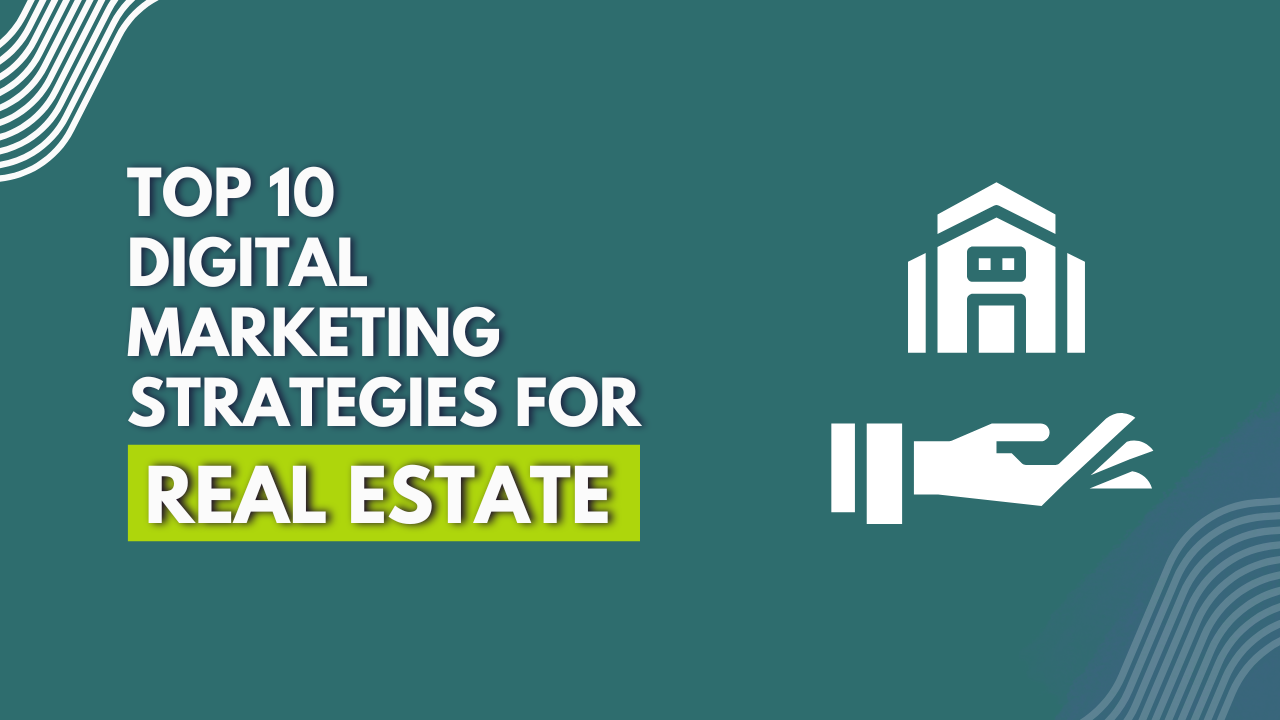In today’s competitive landscape, digital marketing for real estate is not a luxury; it’s a necessity. With buyers and investors relying heavily on online platforms to find properties, mastering real estate marketing strategies has become crucial for agents and agencies alike. But where do you begin? From SEO for real estate listings to video marketing in real estate, the options can seem overwhelming. This guide reveals the top real estate marketing tactics designed to capture attention, engage potential clients, and convert leads into loyal customers.
Imagine the impact of harnessing lead generation for real estate agents with content marketing for real estate that speaks to your target audience. Or the potential reach from social media marketing for real estate, tailored to connect with audiences on their preferred platforms. The right strategy can transform your brand presence, foster trust, and create lasting connections with prospects. From real estate email marketing tips to paid advertising for real estate, the path to success lies in implementing precise, effective, and data-driven tactics. Dive into these real estate digital marketing ideas to navigate today’s digital-first market with confidence.
1. Optimize for Search Engines (SEO)
The foundation of online marketing for real estate agents lies in SEO. An effective SEO for real estate listings strategy can drive organic traffic to your website, making it easier for prospective buyers to find your properties. Start by researching keywords that your target audience is searching for and incorporate these into property descriptions, blog posts, and landing pages. Optimize images, add meta tags, and ensure that your website is mobile-friendly to increase visibility. Local SEO for real estate is especially important, as most clients search for properties in specific locations. Use Google My Business and relevant local keywords to improve your site’s ranking in local searches.
2. Content Marketing to Educate and Engage
Content marketing for real estate is an invaluable tool for building trust and authority in the industry. Create content that educates buyers and sellers, such as market insights, community highlights, and property buying tips. Blog posts, eBooks, and infographics can help establish your expertise and answer common questions that your clients might have. Valuable, informative content will encourage users to spend more time on your site, reducing bounce rates and enhancing SEO. This strategy establishes you as a trusted expert, strengthening client confidence and cultivating lasting relationships.
3. Leverage Social Media Marketing
Social media marketing for real estate allows agents to connect directly with potential clients and showcase properties through visually engaging formats. Platforms like Instagram, Facebook, and LinkedIn offer unique opportunities to share listing photos, success stories, and behind-the-scenes insights. By consistently posting high-quality content and engaging with followers, you create an interactive community around your brand. Video tours, client testimonials, and local event coverage can generate interest and engagement. Additionally, the power of paid ads on social media cannot be underestimated, as it allows you to target specific demographics and drive traffic to your listings.
4. Invest in Video Marketing
Video marketing in real estate is one of the most compelling ways to showcase properties. High-quality video tours give prospective buyers a comprehensive view of a property, saving time and creating excitement before an in-person visit. Virtual walkthroughs, drone footage, and neighborhood highlights offer immersive experiences that photos alone cannot capture. YouTube, Instagram Reels, and Facebook Live are excellent platforms to publish these videos. By including virtual tours in your marketing strategy, you can reach a larger audience and provide a sense of connection to properties, even for remote buyers.
5. Email Marketing to Nurture Leads
Real estate email marketing tips highlight the importance of email as a consistent touchpoint for leads and clients. By utilizing targeted email campaigns, agents can update clients on fresh listings, upcoming open houses, and the latest market trends. Segmented email lists allow for personalized content tailored to clients’ interests and buying stages. A well-structured email drip campaign nurtures prospects over time, reminding them of your expertise and availability. In addition, regular newsletters that provide valuable insights keep your brand top-of-mind, strengthening your relationship with subscribers and improving conversion rates.
6. Pay-Per-Click Advertising (PPC)
For faster lead generation, real estate PPC campaigns offer an effective solution. Unlike organic SEO, which takes time to build, PPC campaigns generate immediate visibility by displaying your ads at the top of search results. Google Ads and social media platforms offer paid advertising that can be tailored to specific geographic regions, demographics, and buyer interests. Paid advertising for real estate can target high-intent keywords like “homes for sale in [location]” or “luxury real estate [location],” ensuring that you attract leads who are actively searching for properties.
7. Enhance Your Website for Optimal User Experience
A professionally crafted website acts as the online storefront for your business. Real estate website optimization ensures that your site is fast, user-friendly, and mobile-responsive. Clients expect seamless browsing experiences, whether they’re on a computer or smartphone. Simple navigation, quick-loading pages, and clear property information are essential. High-quality photos, 3D virtual tours, and an easy-to-use search function are also critical components. By offering a streamlined and professional website experience, you create a lasting impression and make it easier for clients to find the properties they’re interested in.
8. Build a Strong Brand Identity
To differentiate yourself, you must invest in real estate branding strategies that communicate your unique value proposition. A cohesive brand identity includes your logo, color scheme, tagline, and messaging style. This identity should resonate across your website, social media, and marketing materials, creating a consistent experience for clients. By developing a recognizable and professional brand, you build trust and credibility in the industry. Brand consistency signals reliability, helping potential clients remember you when they’re ready to make a decision.
9. Utilize Local SEO for Enhanced Visibility
Most real estate transactions are local, making local SEO for real estate crucial. Optimizing for local search means targeting potential clients who are looking for agents, listings, or real estate services in your specific area. Use location-specific keywords throughout your content and set up your Google My Business profile with accurate contact information, office hours, and customer reviews. Engaging with local review sites and directories also improves your local visibility. By tailoring your SEO efforts to your local area, you’re more likely to attract nearby clients ready to buy or sell.
10. Employ Lead Nurturing Tactics
Lead nurturing for real estate involves building relationships with prospects over time through targeted and consistent communication. This approach is especially valuable in real estate, where buying or selling a property can be a long process. Lead nurturing tactics include follow-up emails, personalized recommendations, and sharing relevant market updates. Automated CRM systems make it easy to manage and track client interactions, ensuring that no leads fall through the cracks. By maintaining regular contact, you stay top-of-mind, positioning yourself as the agent clients can turn to when they’re ready to make a move.
Conclusion
These top real estate marketing strategies are designed to navigate today’s digital-first marketplace effectively. By implementing top real estate marketing tactics like social media marketing for real estate, content marketing for real estate, and effective real estate advertising, agents can create a powerful online presence that attracts and converts clients. Embracing these digital marketing trends for real estate allows agents to stay competitive, establish their brand, and reach more potential clients in a saturated market.


